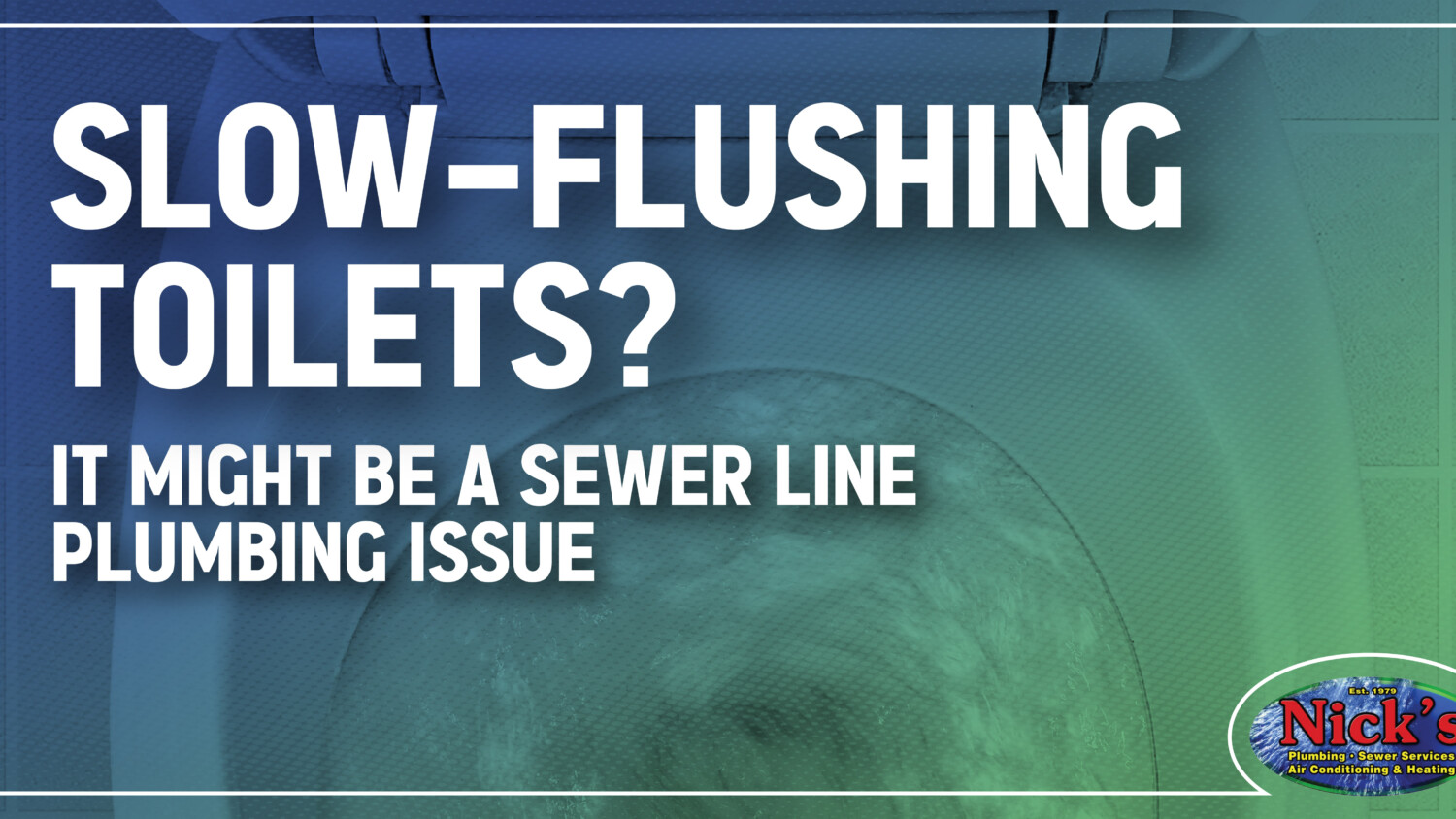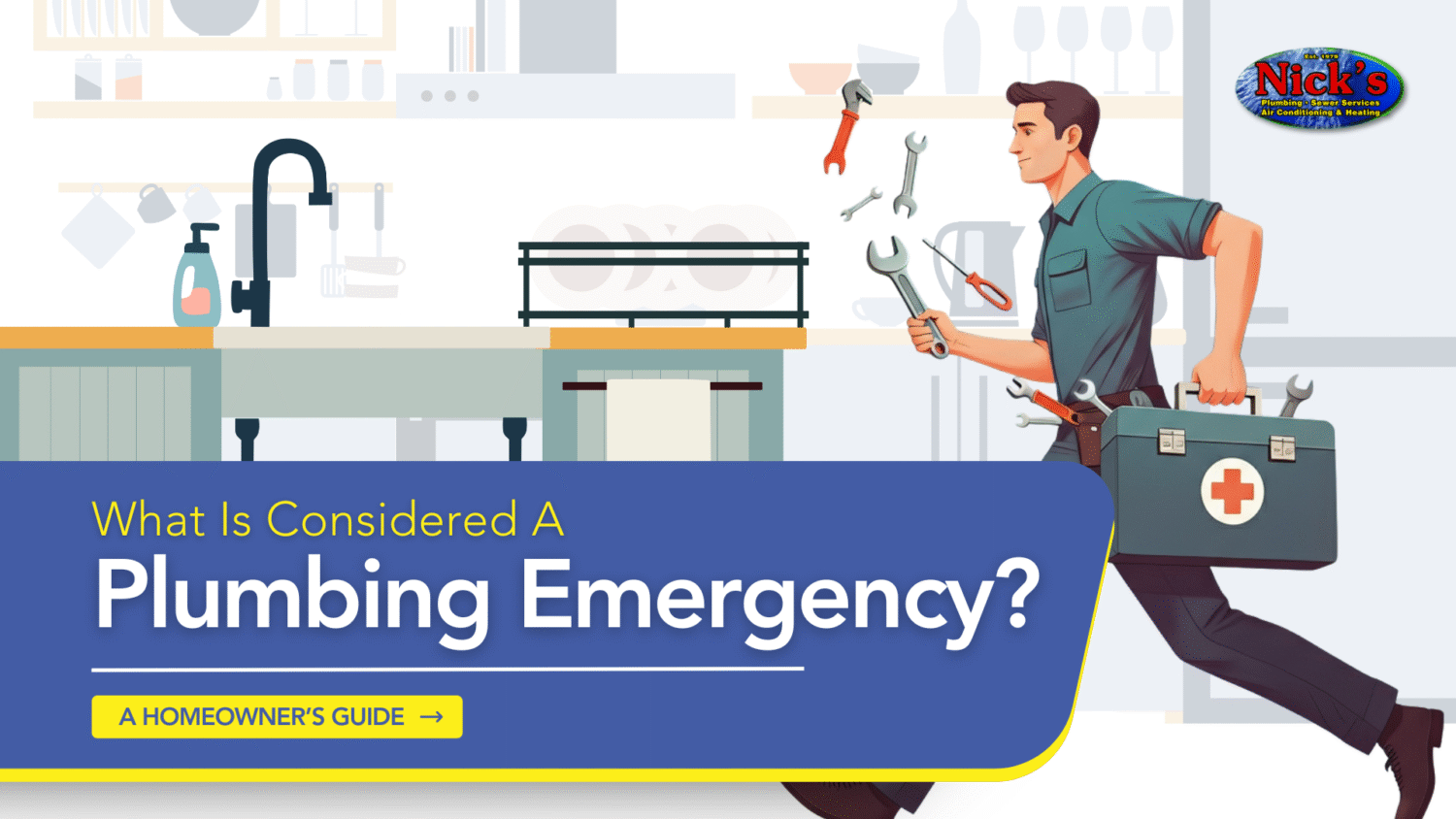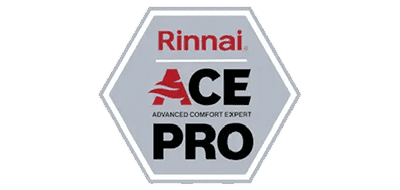We like to associate the winter season with an array of pleasing smells, especially around the holidays, when the aromas of cinnamon, roasted chestnuts, and gingerbread cookies should fill the house with a sense of comfort.
Now, imagine that warm, inviting scent being replaced by the odor of raw sewage!
Nick’s Plumbing knows that offensive smells are never a good sign of anything, and when it comes to your drain and sewer plumbing those offensive odors could be a symptom of a true plumbing emergency.
What Causes My Plumbing to Smell Like a Sewer in the Winter?
Plumbing vents can become blocked or frozen when temperatures drop, preventing sewer gases from properly venting outside. As these gases build up, they can find their way into your bathroom—and other areas of the house—if there are minor leaks, weakened seals, or dried-out traps. Cold weather can also cause rapid evaporation or create a vacuum effect in the pipes that pulls the water out of traps that generally act as barriers to sewer odors.
The #1 Cause is Trap Seal Loss.
The trap seal is a water-filled barrier within a plumbing fixture‘s U-shaped bend, or its P-trap, that prevents sewer gases from entering your home. Located beneath sinks, toilets, and other drains, the trap holds a small amount of water, which acts as a seal to block the passage of odors and gases from the sewer line. This water barrier is essential for indoor air quality, as it stops hazardous, foul-smelling gases from backing up through the pipes and into your living space.
When temperatures drop, the air in plumbing traps can cool rapidly, causing the water barrier to evaporate, which may disrupt the normal flow of sewer gases out of your home. If these gases can’t escape through the roof vent, they can linger in your pipes and sometimes seep into your living spaces.
What Else Can Cause a Sewer Smell in My Plumbing?
During colder months, you may notice a sewage smell in your bathroom, which can be both unpleasant and concerning. Colder weather can worsen underlying plumbing issues, like cracked drain and sewer lines, leading to indoor sewer gas buildup.
Understanding the potential causes can help you take the proper steps to prevent and address the problem.
Blocked or Frozen Plumbing Vents
Common signs include gurgling sounds from sinks, toilets, or drains as water struggles to flow correctly, often due to trapped air in the pipes. You may also experience slow drainage or find that water levels in toilets fluctuate unexpectedly, as a blocked vent disrupts the pressure balance in the plumbing system. In some cases, foul odors from sewer gases may seep into the home, as the vent can no longer allow these gases to escape outside. If you notice any of these symptoms, especially during cold weather, it may indicate a blocked or frozen vent that needs immediate attention to prevent further plumbing issues.
Vacuum Effect from Cold Air
A vacuum effect occurs when cold air causes a sudden change in air pressure within the plumbing system, which can pull water out of trap seals, especially in uninsulated or exposed pipes. Signs of this issue include foul sewer odors from drains as the water barrier in the trap seal is reduced or eliminated, allowing gases to escape into the home. Additionally, if you notice air bubbles or gurgling sounds coming from drains, this may indicate a pressure imbalance due to the vacuum effect. Toilets and sinks on upper floors or rooms close to exterior walls are often more susceptible.
If you suspect this issue, replenishing the water in trap seals by running water through the affected drains can help restore the barrier and resolve the odors.
Loose or Damaged Seals
Toilet flange gaskets, drain fittings, and sewer line connections can create direct pathways for sewer gases to enter the home, leading to unpleasant and potentially harmful odors indoors. These seals are designed to maintain a tight barrier, preventing gases and waste from escaping the plumbing system.
When a seal, like a toilet flange gasket, becomes worn or broken, it can allow sewer gases to seep into the bathroom and, if ignored, lead to leaks or water pooling around the toilet’s base. A broken toilet flange permits gas backup and compromises the toilet’s stability, resulting in wastewater seeping onto the floor with each flush. This can lead to unsanitary conditions, water damage, and mold growth if left unchecked.
Condensation in Pipes
This can contribute to a sewer smell in your bathroom by disrupting the normal flow and pressure balance needed to vent sewer gases outside. When cold weather or humidity causes condensation, it can create a vacuum effect in the pipes, pulling water out of the trap seals that typically block sewer gases.
Without this water barrier in the traps, unpleasant odors from the sewer system can flow back into your bathroom. Additionally, excessive moisture can encourage mold and bacteria growth around pipes and drains, intensifying any odors. Proper insulation and ventilation can help reduce pipe condensation and prevent these odor issues, keeping your bathroom smelling fresh.
How Can I Locate Where the Sewer Odors Are Coming From?
Locating where your sewer odors are coming from starts with inspecting those areas most vulnerable to plumbing issues, such as bathrooms, basements, and kitchens. Begin with the most likely culprits: check for dry trap seals by running water in infrequently used sinks, tubs, or floor drains to see if this eliminates the smell.
Next, examine toilets for any movement or dampness around the base, which could indicate a loose or damaged flange gasket, allowing sewer gases to escape. Listen for gurgling sounds from drains, which might point to venting issues or the vacuum effect pulling water out of traps.
Additionally, inspect for cracks or signs of wear in drain fittings, sewer line connections, and seals, which can create pathways for sewer gases to leak into the home. By systematically checking each potential source and addressing any issues, you can often identify and eliminate the root cause of the odors.
What Do I Need To Fix To Make That Smell Go Away?
To eliminate sewer smells, you’ll need to address any plumbing issues that allow sewer gases to escape into your home.
- Refill Dry Trap Seals: Run water in sinks, tubs, and floor drains to refill dry trap seals, creating a barrier that blocks sewer odors.
- Inspect and Repair Loose or Damaged Seals: Check around toilets, especially the flange gasket, and tighten or replace any worn seals to prevent gas leaks.
- Clear Blocked or Frozen Vents: If you hear gurgling sounds or see fluctuating water levels, it may indicate a venting issue; consult a plumber to clear any blockages and restore proper ventilation.
- Insulate Pipes to Prevent Condensation: Adding insulation to exposed pipes reduces condensation that can disrupt the trap seals and lead to sewer odors.
- Check Drain Fittings and Sewer Line Connections: Inspect for any cracks or weak seals in fittings and connections and repair as needed to prevent sewer gas from leaking into the home.
How Can I Prevent the Sewer Smell in My Plumbing in the Future?
Preventing sewer smells in your plumbing starts with regularly running water through all sinks, tubs, and floor drains to keep trap seals filled and block sewer gases. Insulate pipes in unheated areas to prevent condensation and the vacuum effect that can pull water out of traps, especially during cold weather. Ensure all vent pipes are clear and unobstructed, as proper ventilation helps gases escape safely outside rather than backing up into your home. It’s also essential to check and maintain seals around toilets, drains, and fittings, replacing any worn gaskets or cracked seals that could allow odors to escape.
Finally, consider routine plumbing inspections to catch and address any issues early, helping keep your plumbing system running smoothly and odor-free year-round.
Why Choose Nick’s Plumbing for Your Winter Plumbing Services?
With years of experience in Houston’s unique climate, Nick’s Plumbing understands how sudden temperature drops can affect plumbing systems that aren’t accustomed to extreme cold. Our team of licensed professionals uses advanced techniques to safely thaw, repair, and insulate pipes, preventing further damage and costly repairs.
Known for prompt and reliable service, Nick’s Plumbing prioritizes customer satisfaction. It ensures that residents receive effective, long-lasting solutions to protect their homes from winter weather hazards. When cold weather strikes, Houston homeowners can rely on Nick’s to keep their plumbing systems safe and operational.
Call Nick’s Today. We’re on the Way!


























